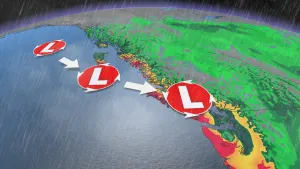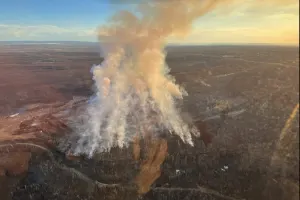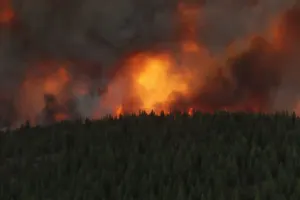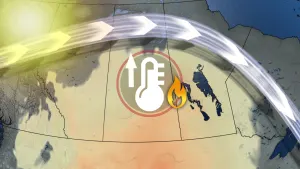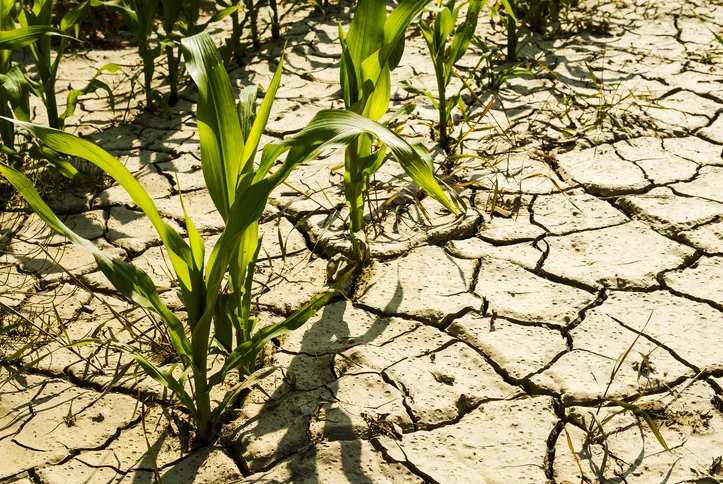
More Alberta communities declare agricultural disaster as drought continues
Rocky View County is the latest Alberta municipality to declare an agricultural disaster, as drought conditions continue to plague the province's crops and pastures.
Weeks of extreme heat and little rain have caused projected crop yields to drop by as much as 75 per cent in some regions. In recent days, Vulcan County, Foothills County, Greenview, the County of St. Paul and Lac Ste. Anne County, among others, have declared agricultural disasters as well.
Dan Henn, Reeve of Rocky View County and a life-long farmer, said the state of emergency largely functions to signal to the provincial or federal governments that the situation is "catastrophic."
"Hopefully the government can, I'm sure, recognize a trend and deal with it how they see fit," he said. "I don't think we've ever experienced a drought like this, at least I don't ever remember it being this dry and I've been involved in agriculture my whole life."
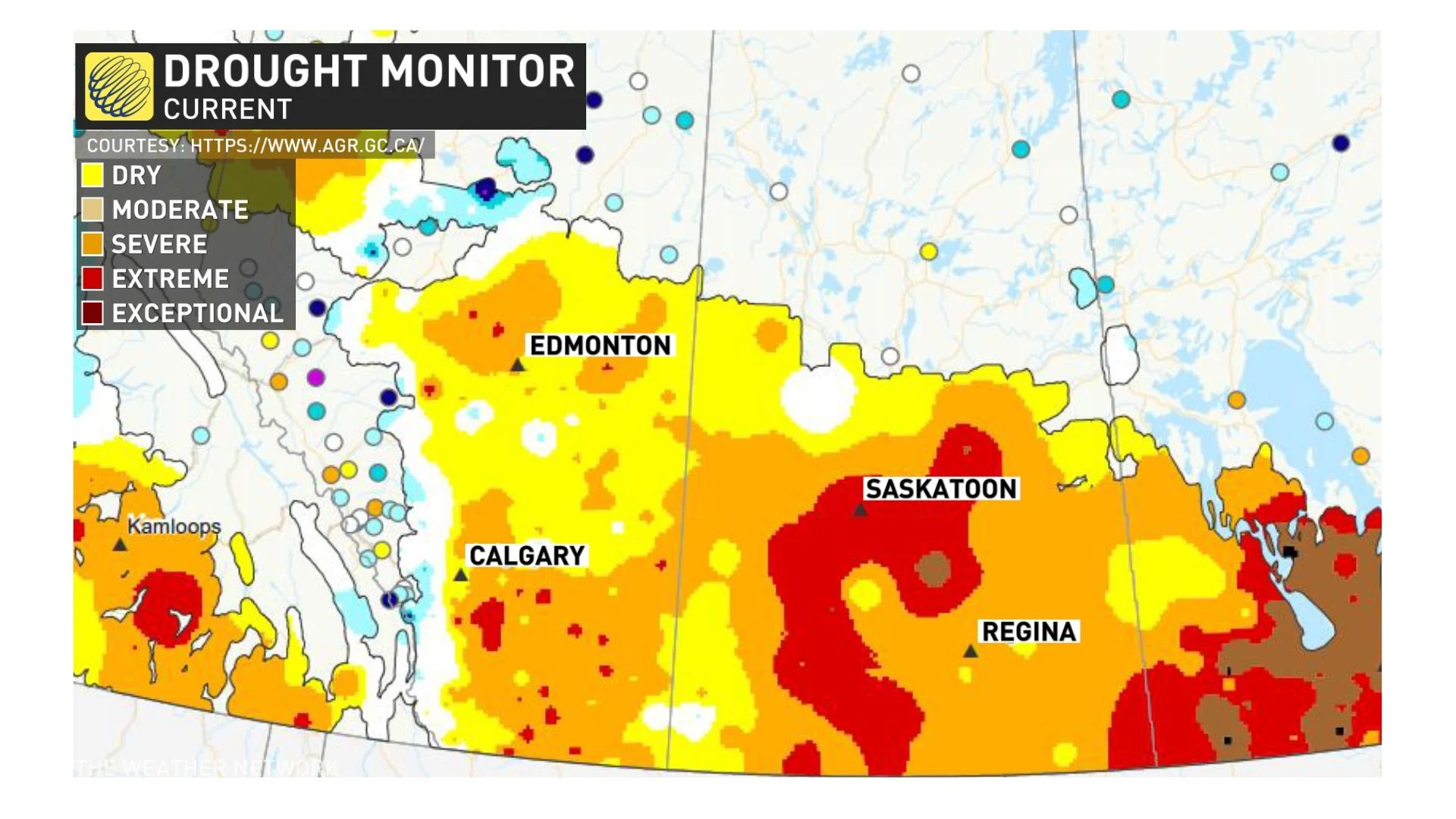
RELATED: Record-breaking heat means we must change how we talk about climate change
Cereal and canola crops in the area are expected to be 50 per cent of a typical year, at best, Henn said. On the east side of the county, he expects some farmers won't even be starting their combines — "they'll either silage what's left of their cereal crops or turn cattle in to them."
Premier Jason Kenney toured Alberta farms over the weekend, hearing farmers' concerns.
The province is calling on the federal government to quickly activate the AgriRecovery program designed to cover uninsurable costs, including costs incurred during extreme drought.
Henn said the provincial government could help by expediting crop insurance payments — the province says the Agriculture Financial Services Corporation has hired additional adjusters, and advised them to be flexible and complete early assessments — and that natural disaster relief from either level of government also wouldn't hurt.
"This just doesn't affect grain farmers or cattle farmers in the area … I think it's going to affect prices at the grocery store," Henn added.
This article was originally published for CBC News. Contains files from Elissa Carpenter.






